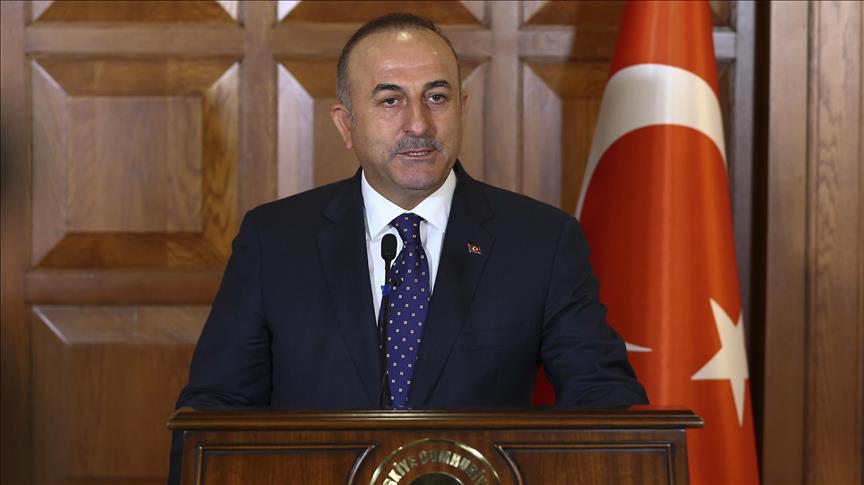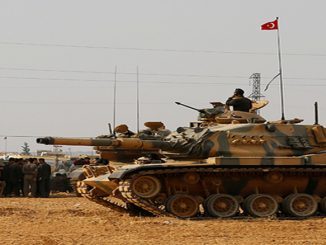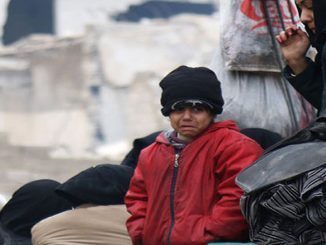
By: Merve Şebnem Oruç*
The Arab Spring that started six years ago was supported in the beginning by the U.S. within the context of the same logic. As a matter of fact, certain catalysts were activated to kick start revolutions in the Arab street that was craving freedom; youth movements and liberal formations were finances. Turkey’s being presented as a model country for the Middle East was also based on the confidence in FETÖ’s parallel structure within the Turkish state. When the breaking point was reached, all bets were placed not on President Recep Tayyip Erdoğan and the Justice and Development Party’s (AK Party) resistance but on their kneeling.
The U.S. offers a new American dream in Arab streets that have livened up with iPhones, Twitter and Facebook. It was showing the same dream it showed the Russians back in the time with McDonald’s, Hollywood and Walt Disney thinking it would work. Once the dictators left, freedom would come and Arabs would choose secular liberalism in the guise of “democracy.” That’s not what happened. The conservatives started to win at the ballot box, the Muslims whose wills were freed started to use their preferences on the side of rules on the Islamic/Islamist line. In other words, the Arab Spring was off the rails and an intervention was compulsory. Hence, the counter-revolutions financed by Gulf countries in countries like Egypt and Libya were overlooked and supported, while position was changed in the Syria leg, which was blocked with Russia barricading the collapsed dominos. The Gülenists attempted to seize control in Turkey during the same period. The period that started with the National Intelligence Organization (MİT) crisis in 2012 was followed by the Gezi provocations in 2013 and immediately by the Dec. 17 and Dec. 25, 2013 coup attempt. The group lost its crypto quality with every failure, thus revealing FETÖ.
In the years 2014-2015, the proxy wars in the Middle East are tried to be moved to Turkey through terrorist organizations and while the moderate Islamist FETÖ is made room through terrorist organizations such as the “radical” Daesh and “secular” Democratic Union Party (PYD) – that are used as carrots – the U.S. was also seeking new allies that comply with its new war concept. Similar to the cooperation with Muslims against the “atheist” and “communist” Soviets during the Cold War period, this time it could cooperate with Russians against the “radical” and “jihadi” Muslims. The U.S.-Russia tables that are set up in relation to finding a political solution in Syria, the intimate meetings of the foreign ministers of both countries, military cooperation against Daesh, intelligence sharing and the cease-fire decisions that are never physically implemented, were the first steps of this plan. The move to make Russia enemies with Turkey, which was planning to intervene in northern Syria, with the downing of the Russian jet, to rivet the plan in question, was also a part of this. The signals of Turkey and Russia restoring ties in May were disturbing. However, had the July 15 coup attempt succeeded, the entire issue would have been entirely taken care of.
Thankfully they could not succeed. In addition to their failure, with the grace of God, all the secret plans became disclosed. Because everything had taken place in front of everybody’s eyes. The improving ties with Russia gained pace with the July 15 coup attempt; today, many issues including a solution in Syria and military cooperation are being discussed between the two countries for the first time in a hopeful way. It seems, for the first time in years, an unexpected cooperation along with the likelihood of a multipolar world is emerging against the plans and projects of the super power that designed these territories from beyond the ocean. The cards were reshuffled with July 15 and the U.S. is not in the slightest bit happy with this new unexpected situation.
*Merve Şebnem Oruç is a Turkish journalist and columnist.
(Published in Yeni Şhafak on Sunday, Sept. 18, 2016)



